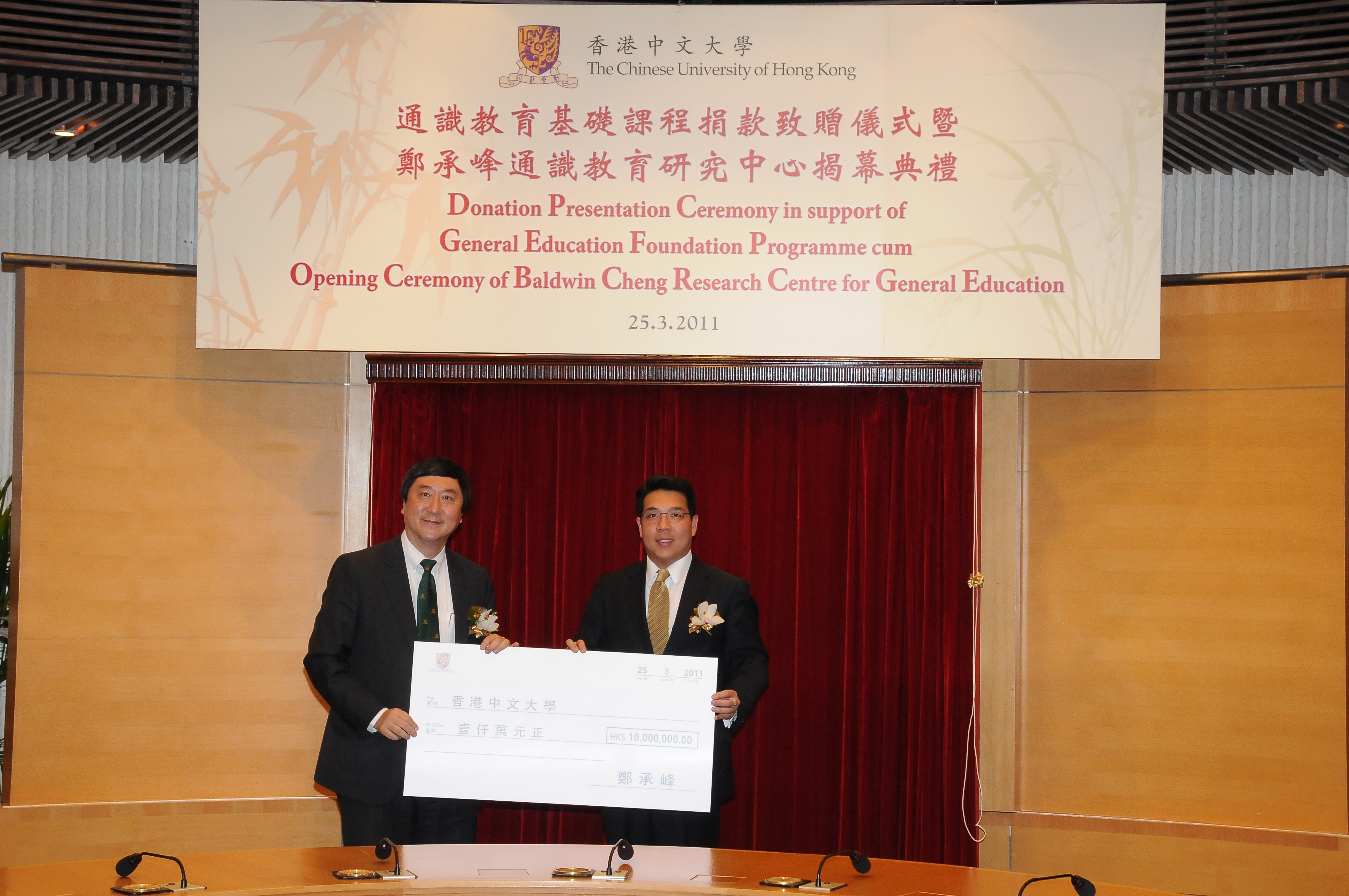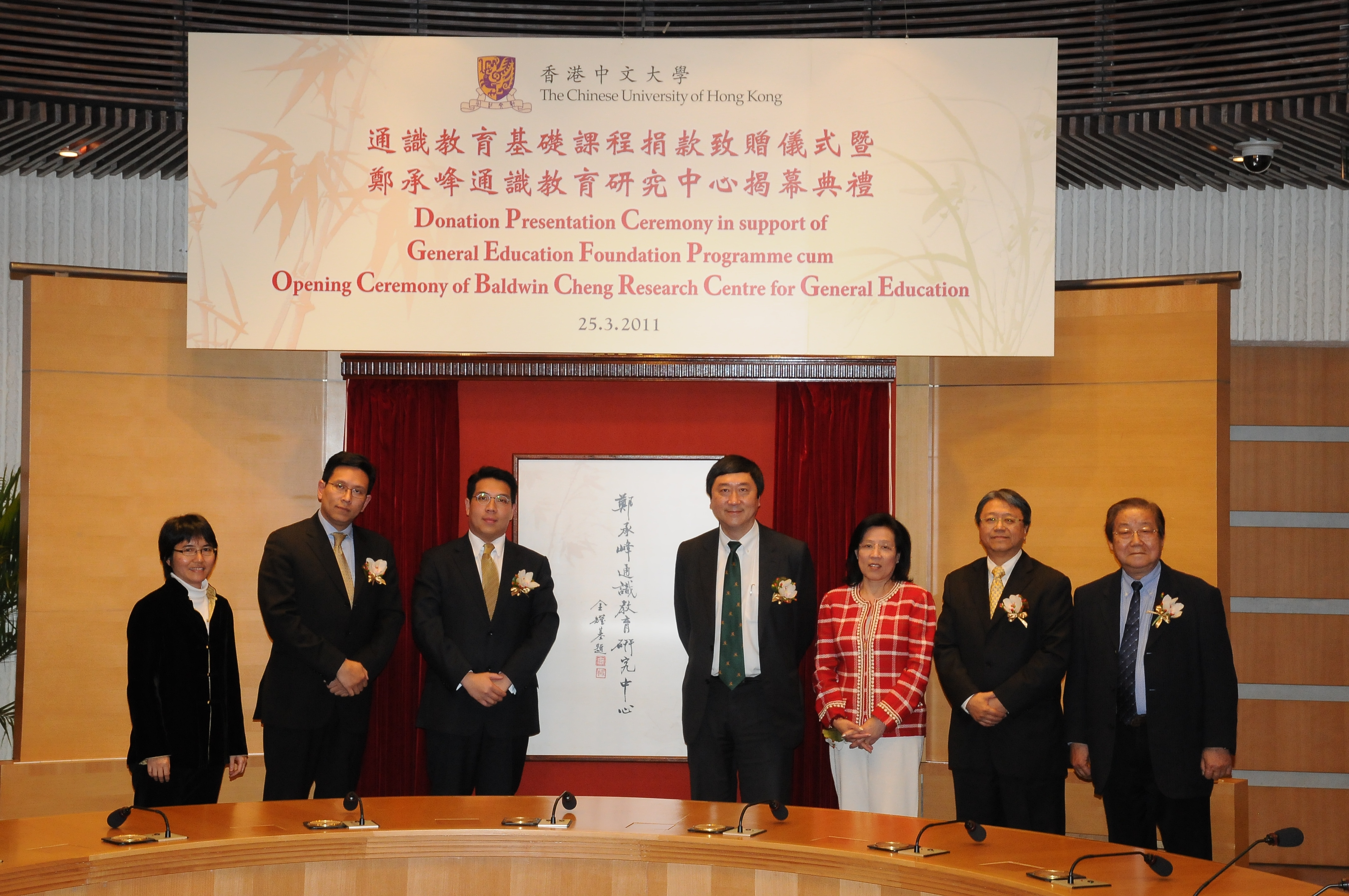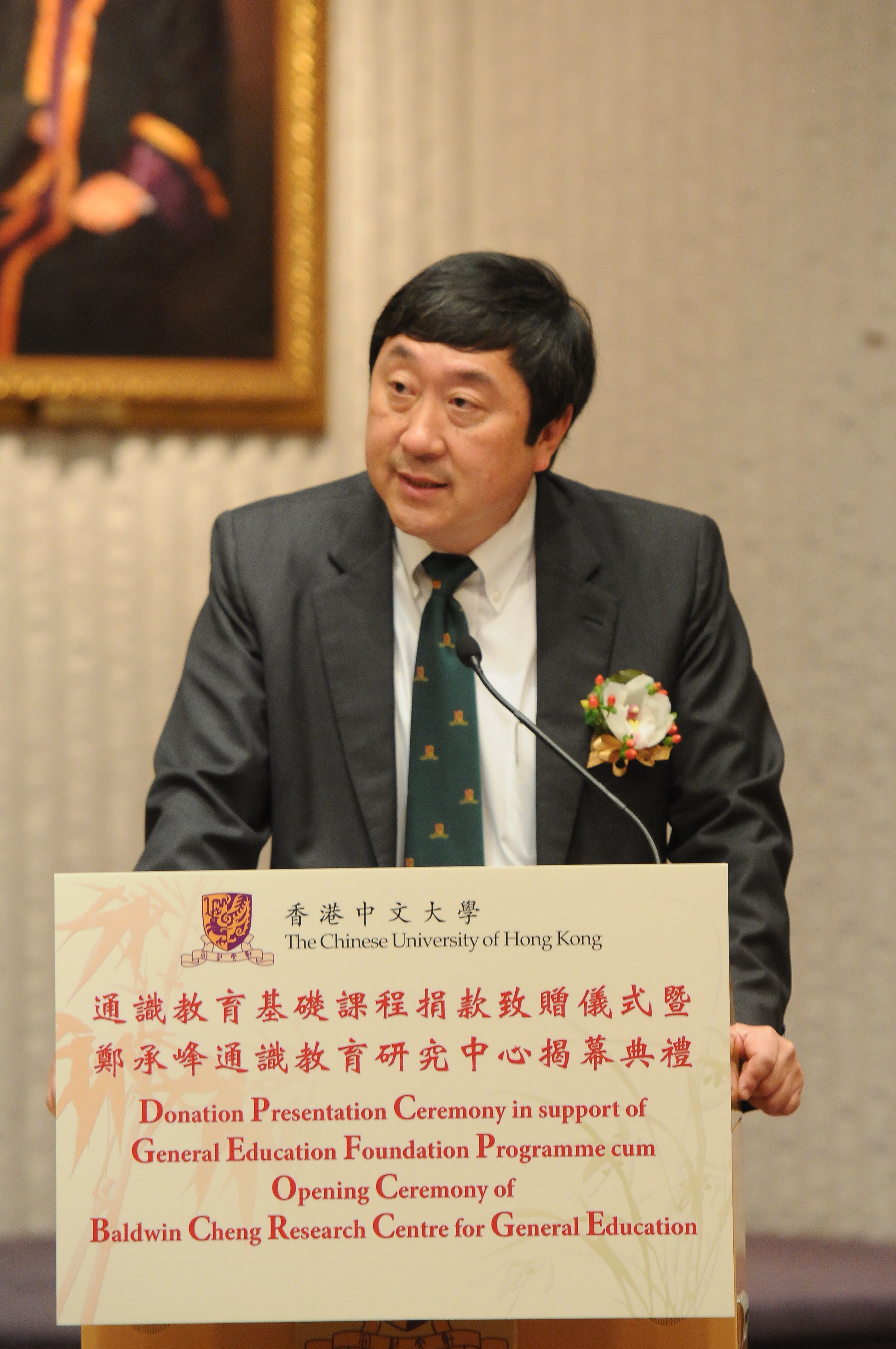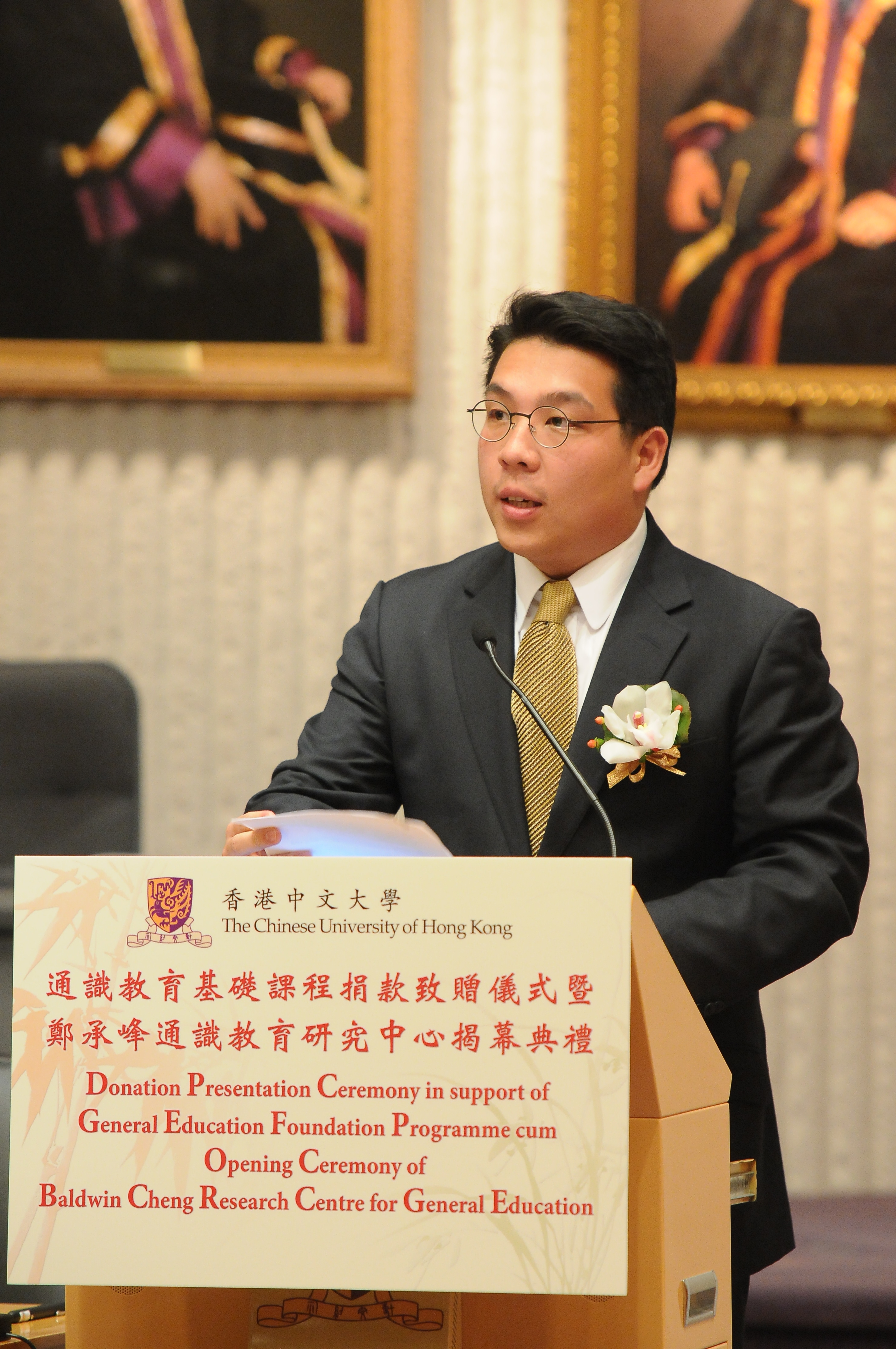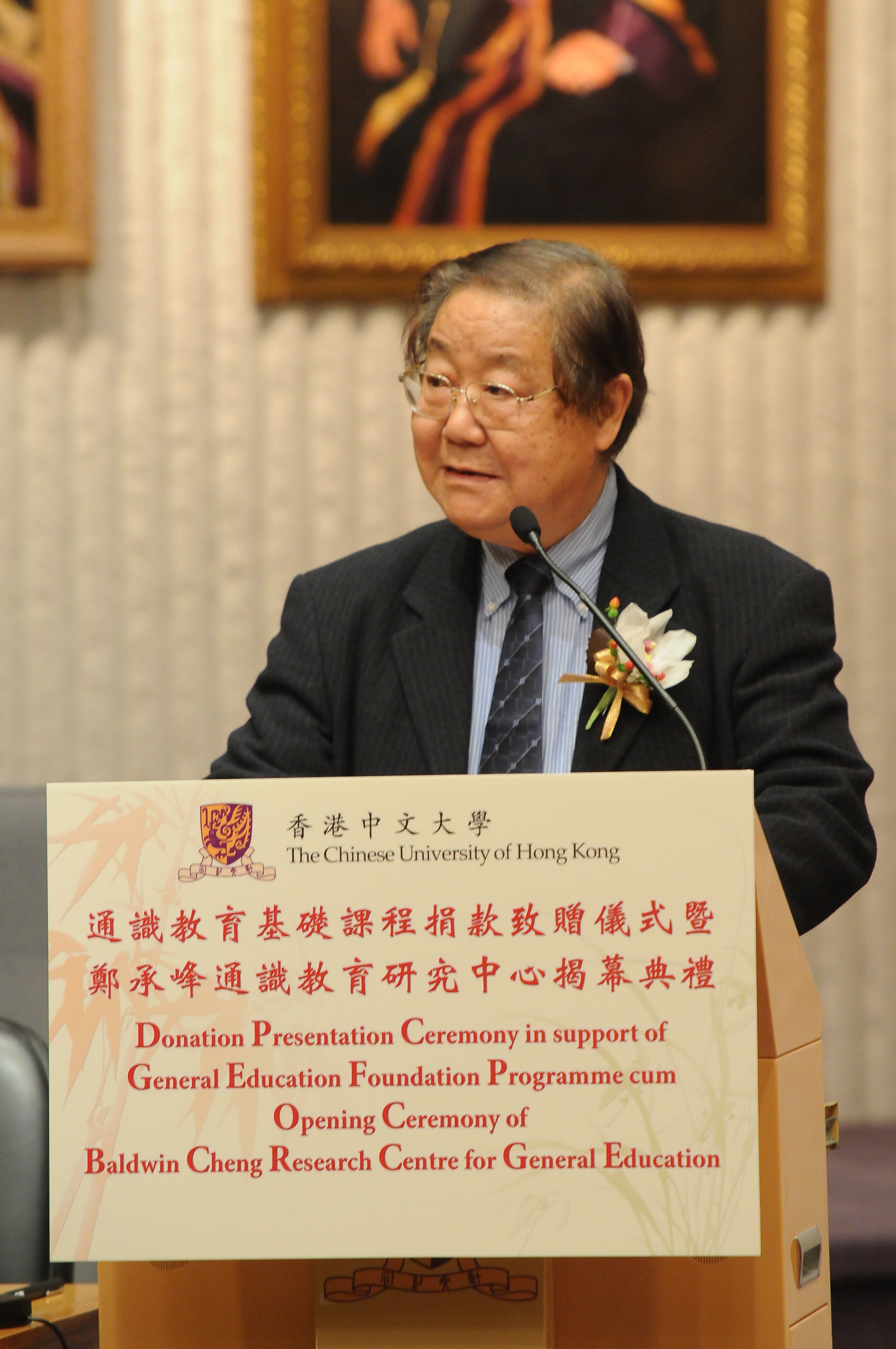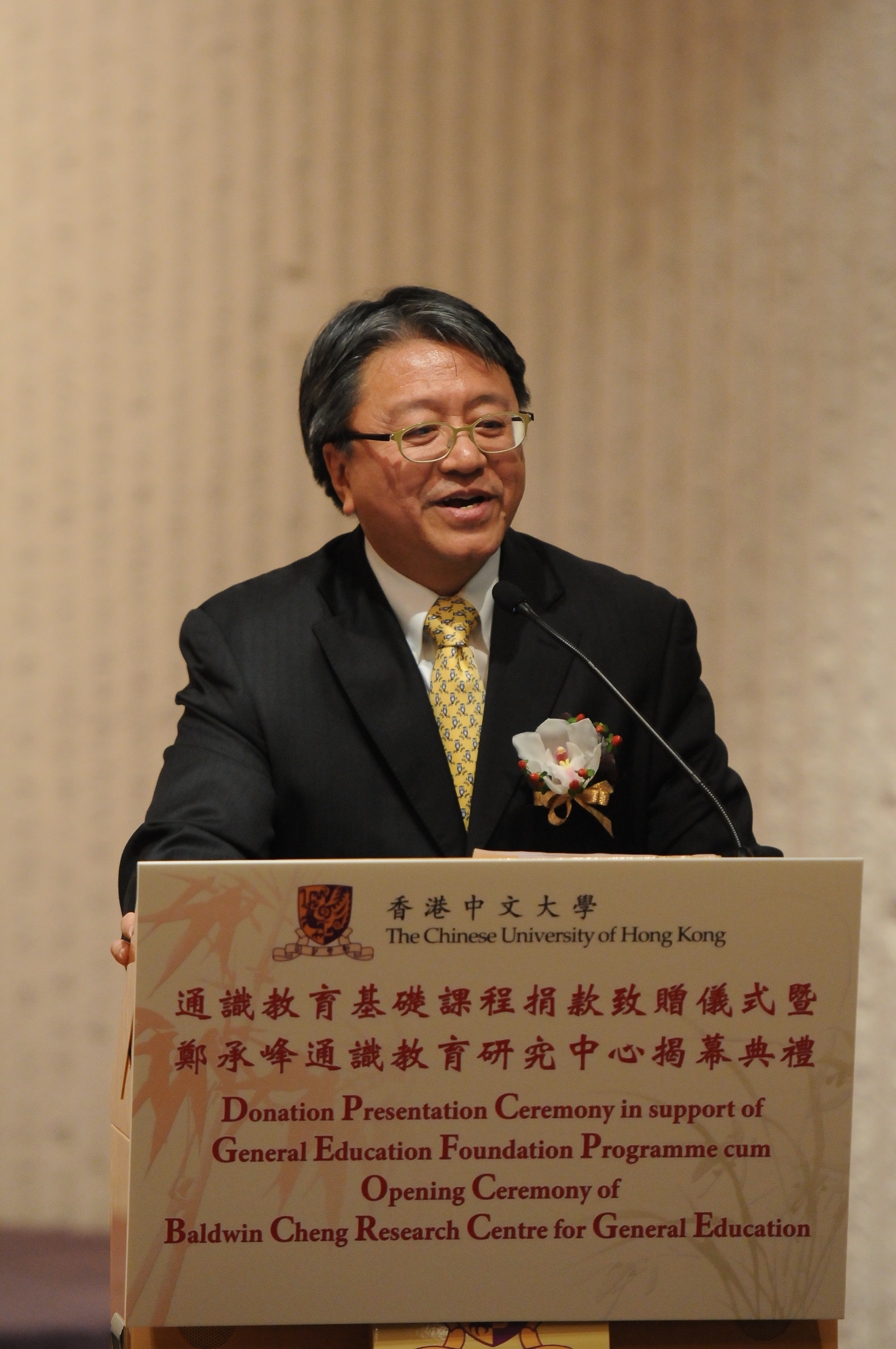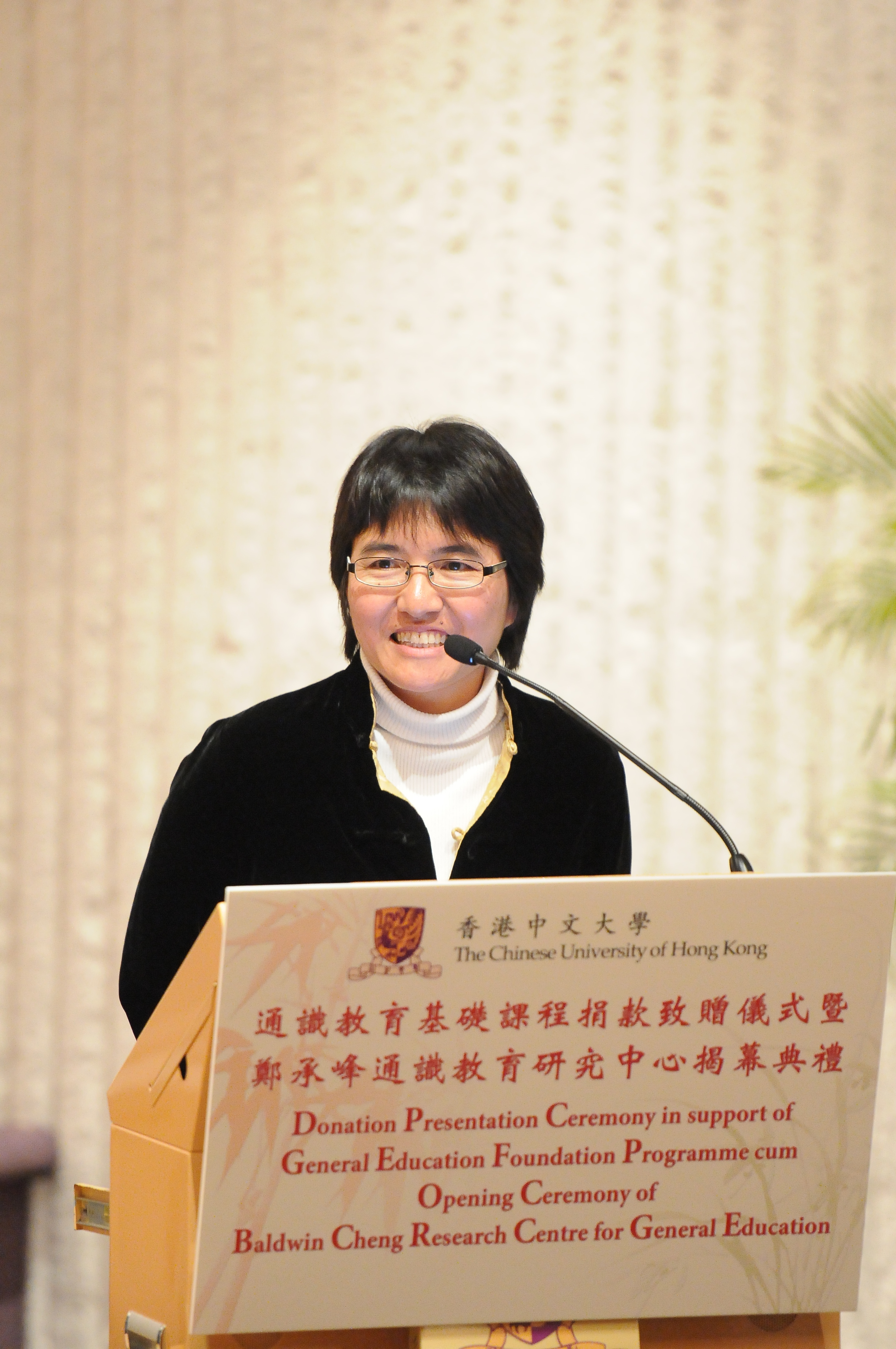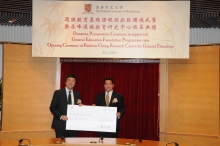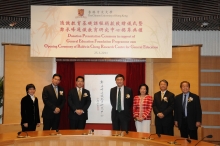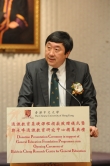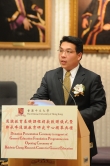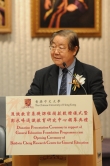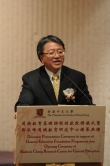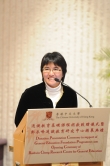CUHK
News Centre
Philanthropist Donates 10 Million to Support CUHK General EducationBaldwin Cheng Research Centre for General Education Opens
The Chinese University of Hong Kong (CUHK) has received a generous donation of HK$10 million from Mr. Baldwin Cheng in support of the development of its ‘General Education Foundation Programme’. To commemorate Cheng’s contribution, the Research Centre for General Education in CUHK is now renamed the Baldwin Cheng Research Centre for General Education. The donation presentation ceremony cum opening ceremony of the Baldwin Cheng Research Centre for General Education was held last Friday (March 25). Officiating guests included Mrs. Cheng Ying-yim, Dr. Edwin Cheng, Mr. Baldwin Cheng, Prof. Ambrose King, Emeritus Professor of Sociology and former Vice-Chancellor of CUHK, Prof. Joseph J.Y. Sung, Vice-Chancellor of CUHK, and Prof. Cheung Chan-fai, Director of University General Education and Director of the Baldwin Cheng Research Centre for General Education, CUHK. Prof. Ambrose King delivered a keynote speech on the value of reading classics and the importance of humanity education at the ceremony.
The Cheng family has been a staunch supporter of the development of general education and humanity education at CUHK. Under the patronage of Mr. Baldwin Cheng’s father, Mr. Cheng Ying-yim, and his brother, Dr. Edwin Cheng, a research fund on general education and philosophy research was established in 2005 to support CUHK’s philosophy and cultural development. Over the years, the centre has embarked on various research projects and facilitated meaningful exchange on general education on local, regional and international levels. The results have been most promising.
Mr. Baldwin Cheng, a graduate of CUHK’s M.A. in Philosophy programme in 2007, believes that CUHK has an excellent humanistic tradition and that humanistic education is the soul of university education. He remarked that it was Vice-Chancellor Professor Sung’s emphasis on general education and humanity that encouraged him to support this education ideal. He said, ‘CUHK has a long and noble history in general education. Its achievement is well recognized. I hope the donation will inspire and motivate more support from the public for the development of general education and the humanities.’
Professor Sung expressed his deepest gratitude to Mr. Cheng and his family. He said, ‘The generous donation from the Cheng family is an affirmation of CUHK’s humanistic and general education tradition. Through the reading of classics and small-class seminar discussions, the General Education Foundation Programme supported by Mr. Baldwin Cheng engages students in dialogues on important value issues. Mr. Cheng’s endowment shows that our ideal of whole-person education has the support of the public.’
About the General Education Foundation Programme
The General Education Foundation (GEF) Programme is a small-class classics reading programme that is a required subject for all first-year students of CUHK under the new four-year undergraduate curriculum. The programme is divided into two core courses, namely ‘In Dialogue with Humanity’ and ‘In Dialogue with Nature’. Through the study of classics of different cultures and periods in history, students engage in the discussion of critical issues of human society.
Classics for Today
Programme Director Prof. Leung Mei-yee, also Associate Director of University General Education, said many people thought that the aim of reading the classics is to convince students to accept the views of the past, but in fact the goal of the GEF Programme is to build up students’ critical thinking and to widen their perspectives. ‘The two core courses comprise 22 pieces of classic text excerpts. Each “authority” holds a different view on “What is humanity?”, “What is truth?”, and “What is it that makes a good life and a good society?”’ said Professor Leung, ‘Students have to engage in direct dialogues with different ideas and explore the original texts to develop their own thinking, rather than simply subscribing to what the authors say.’
And neither should the contemporary significance of the classics be underestimated. Professor Leung mentioned that students of ‘In Dialogue with Nature’ recently read Silent Spring, a classic written by the famous biologist and environmentalist Rachel Carson, which prompted them to reflect on the consequences of human manipulation of nature and how knowledge can change our lives, which coincided with the nuclear crisis in Japan. A student wrote that ‘What impacts me most in Carson’s essay is the realization that some people actually are not completely uninformed about the consequence, but commit it knowingly, ignoring the interest of the majority who knows nothing of the details. Although some people are aware of the consequence or they themselves are affected, they are unable to stop it as the power of making decisions is not in their hands.’
Feng Chen, a Year 1 Arts/ Social Science/ Law Stream student from Beijing, quoted Lantingji Xu (literally ‘Preface to the Poems Composed at the Orchid Pavilion’), written by the renowned Chinese calligraphist Wang Xizhi, ‘Sometimes those closely involved cannot see as clearly as those outside; reading the ideas of people in the past can inspire us to ponder on the contemporary world.’
Small Class, Big Topics
The GEF Programme is taught in small class seminars – class size capped at 25, in which students discuss important value issues. The experience this format provides is proven to be very important to students’ transition from secondary school to university learning.
Chen Lingxin, a Year 1 student from Guangzhou studying in the Business Stream, said, ‘In the dorm, our daily exchange is limited to things like “What are you cooking today?”. We don’t really have much chance for deeper exchange of ideas. This programme allows us to discuss value issues, and the small class environment really helps mainland and local students understand each other’s value systems – the echoes and the differences.’ She added that this programme gives them a chance to discuss such matters with sincerity.
Are Aristotle and Confucius long dead clichés? Tse Cheuk-kit Dwight, a Year 1 psychology student taking the course ‘In Dialogue with Humanity’, pointed out that the course readings have influenced him a lot as they present very different view points on virtue and friendship. He said, ‘We rarely look at “friendship” in this comprehensive way. Also, one person’s mind is limited, whereas in this course, we can brainstorm together on our readings of the classics. It has been a real eye-opener. Our discussions really enable us to gain deeper insights.’
Intensive Reading, Writing and Discussion
Dwight also opined that the breadth of the programme has helped first-year students explore their interests. He said, ‘After all, we only major in one discipline. If not for this Foundation Programme, we would not have known that there are so many different ways to pursue knowledge.’
The GEF Programme also attaches importance to training students how to read, write and discuss with others. Many students have remarked how demanding the programme is and how their independent learning ability is enhanced. As Feng Chen suggests, ‘It is like the training of athletes. We are required to read deeply and write every week in our first year. As a result, we find it much easier to proceed to other more advanced courses.’ She also pointed out that the thoughtful feedback and individual counseling that the GEF teachers give is a key to the programme’s success.
The officiating guests unveil the plaque for Baldwin Cheng Research Centre for General Education. From left: Prof. Leung Mei-yee, Associate Director of University General Education and Programme Director of General Education Foundation Programme; Dr. Edwin Cheng; Mr. Baldwin Cheng; Prof. Joseph J.Y. Sung, Vice-Chancellor, Mrs. Cheng Ying-yim, Prof. Cheung Chan-fai, Director of University General Education and Director of the Baldwin Cheng Research Centre for General Education; and Prof. Ambrose King, former Vice-Chancellor and Emeritus Professor of Sociology.
Prof. Cheung Chan-fai, Director of University General Education and Director of Baldwin Cheng Research Centre for General Education, introduces Baldwin Cheng Research Centre for General Education.


